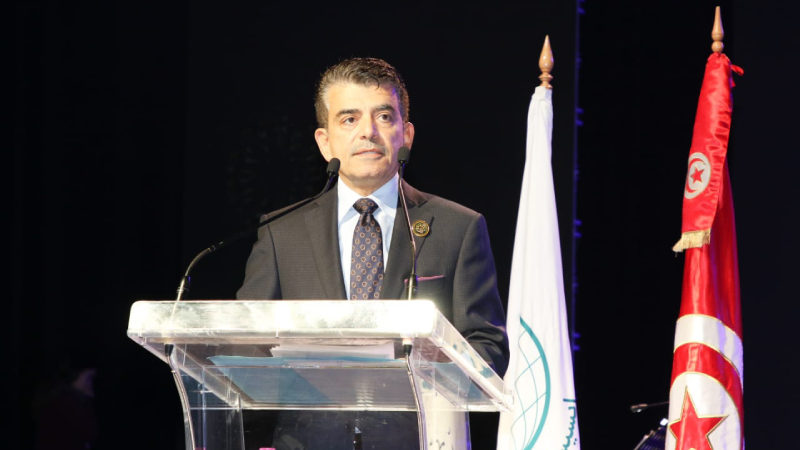
ISESCO launches an initiative to restore ibn Khaldūn’s house in Tunis

20 December 2019
As part of its new vision and future strategies, which adopts the protection and conservation of heritage in Muslim countries, the Islamic Educational, Scientific and Cultural Organization (ISESCO) launched an initiative to restore the house of Abd ar-Raḥmān ibn Khaldūn in downtown Tunis.

Dr. Salim M. AlMalik, ISESCO Director General, announced this initiative during his address at the closing ceremony of the Celebration of Tunis as the Capital of Islamic Culture for 2019, held last Wednesday in the City of Culture, Tunis.
Dr. AlMalik stated that “we face enormous digital and cultural challenges and transformations that we should keep up and deal with. We should also invest in the cultural diplomacy, promote the cultural capital, and export our enlightening culture. The salient example of this is our intention to restore the house of ibn Khaldūn in Tunis and ensure the necessary financial resources therefore.”

Dr. AlMalik’s initiative was warmly applauded by the audience of the ceremony, most notably Dr. Mohamed Zine El Abidine, Tunisian Minister of Cultural Affairs, and the heads of delegation of Muslim countries to the 11th Islamic Conference of Culture Ministers, held in Tunis on 17 December 2019.
Ibn Khaldūn is one of the most famous philosophers, historians and sociologists in the Arab history. He studied in a school close to his birthplace in downtown Tunis, where he spent the longest period of his life. He also lived in Egypt for almost a quarter of a century and died there in March 1406 at the age of 76. He was buried near Bab al-Nasr cemetery close to al-Abbassya neighborhood. He left many works and his biography has been the subject of many studies. His works are used as references in philosophy, history and art. The book “Muqaddimah” is still his greatest work.




